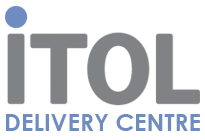
Who makes sure you grow? Julie Cooper shares how Masterminding for trainers can help us grow.
It’s a funny old job, being a trainer. On the one hand, we’re around people a lot, but on the other it’s quite solitary. There is rarely a boss watching how I deliver. Delegates are not colleagues, they are not there to help me develop my own skills – and we all need a way to make sure our own development happens. That’s where a masterminding approach to collaboration can help.
We all have those times when we could do with input from a different brain to our own. What do you do when you really need a different perspective, help with a decision, a niggle explored, fresh ideas when you draw a blank, or a virtual kick up the backside to get you galvanised into action?
You may be lucky enough to have work colleagues that provide all these things; you might hire a coach or mentor, or go on courses now and again. Networks like Trainers Network Northamptonshire also have a role to play – I love the opportunity to rub shoulders with other trainers and see how they work. I’m also a fan of belonging to a Mastermind Group.
…Masterminding is what?
First promoted by Napoleon Hill of ‘Think and Grow Rich’ fame, a Mastermind Group is a vehicle for like minds to help, support and challenge each other. I’ve been involved in four now, the first was a paid model I signed up for, the other three I started myself, where expenses are shared between members. I’ve always started by identifying someone through networking who I think will welcome the idea, then discussed the possibilities over coffee. I use the metaphor that we are like a Board of Directors who will discuss ideas, share successes and hold each other accountable for action.
Who should I ask?
This requires thought, so don’t jump in too quickly – you’ll be trusting the members to handle you well when you expose your vulnerabilities. Having a written outline of the qualities you want and what you want to achieve, like those above, can help.
You also need some equity in people’s ability to fulfil the role. You’re all going to have different backgrounds and experiences, but everyone must have the capacity to help the others. If one person is an absolute beginner, it could be all give and no take. For example, I started one group with a local colleague who was very social media savvy, so one of our guidelines was that members must have reasonable competence in this area, so that our conversations could have the depth that would benefit us all, and not be about explaining the basics. This group was six local women with their own businesses in different fields and ran for two years before it ran its course. Relationships remain strong between the members, collaborations are still in place. Actually, I would go as far as to say that lifelong friendships have been formed.
Great though it was, I decided that I wanted my next Mastermind group to be peers; other trainers or coaches that would understand my role and share my professional challenges. To get this one going, I approached Phil Ingle, a colleague I knew through CIPD. I chose Phil because he offers leadership and management training (like me) and finance training (nothing like me at all!). I thought that Phil would have enough in common but also bring a fresh perspective.
What do you actually do?
Every group has its own personality – that’s what makes masterminding so useful. Usually we start with a catch up, then put topics to discuss on the table, then decide how best to address them. Being a group of trainers, this usually involves scribbling on the flipchart and screen (we hire a meeting room and share the cost). We’re pretty good at sharing good practice, models and theories we’ve come across or used; sometimes it is an exemplar of professional development. Many a business book has been recommended, lent, summarised or discussed.
Topics need prioritising so we can see what is relevant to whom. Most of the time, topics need to be relevant to most of the people. For example, Phil recently wanted to rediscover his writing mojo as his book idea had remained dormant for a long while. I’ve published six books and also offer book coaching, so rather than use Mastermind time to discuss Phil’s issue, I suggested that we deal with it outside of the room, (i.e. coffee shop), which is what happened.
We meet once a month for a long morning which can spill into lunch time. My last group ran from 10am until 4pm, also monthly. You choose what is best for your group, then adapt it as you learn to work together effectively.
We also use a private Facebook group to ask each other questions and talk about what we what to bring to the sessions so that we can prepare and find resources to share. There are conversations in there about web copy, newsletters, psychometrics, client relationships, proposition development, terms of business – its not exactly lightweight! Facebook is also good for encouragement and accountability, we can keep tabs on each other. Of course I am keeping an eye on Phil’s writing progress.
What can go wrong?
A big personality – or a big issue – can railroad a meeting, so it is important that you touch base frequently to make sure everyone is happy with what is happening, and the time things are taking.
I’ve never encountered any serious problems, but one of my colleagues tells a salutary tale. She paid to belong to a (supposedly) Mastermind group, where she discussed and explored a new business idea over several months. Just before she launched the new business, she had an email from another group member, informing her that he had just launched a similar (almost identical) business. A true Mastermind will spawn collaboration, openness and support, not shady competitiveness. Building trust is key – and that takes time.
Is it worth it?
Napolean Hill would tell you that the exchange of knowledge is one of the greatest things in the world, and that there is synergy when minds meet, producing more than the sum of the parts. We need our batteries charged.
I’ve benefited greatly from all the groups I’ve been involved in.
Is it for you? You could write down what your professional development needs are, then think about how they are being met. If there is a gap, a mastermind might be just the ticket.
If you have any questions, do ask. If you have been involved in masterminding, do share your experiences in the comments. I’d love to know how it works for other people!



